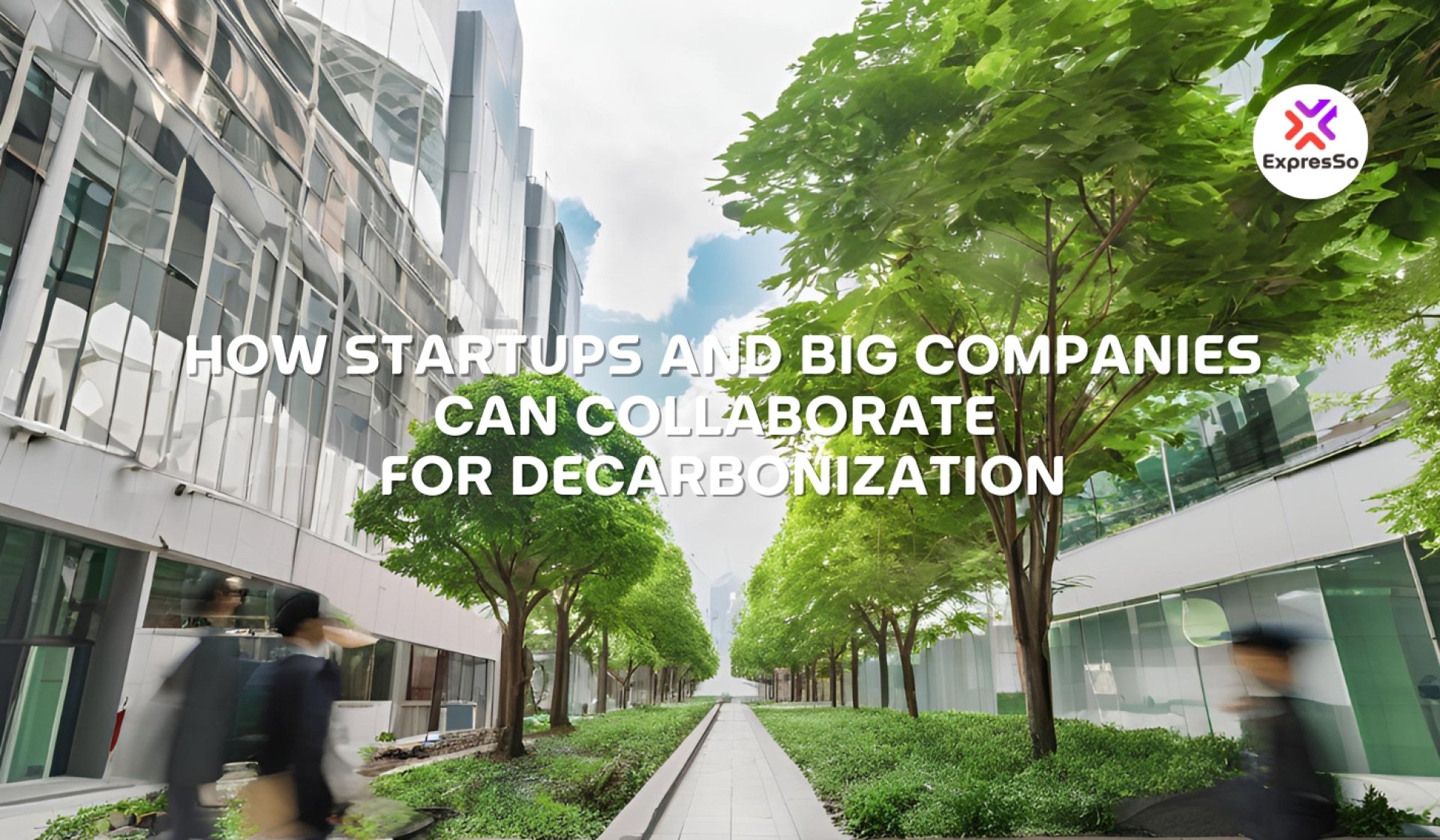Uniting Startups & Corporates: Keys to Decarbonization

To effectively drive decarbonization, it's time to rethink how startups and big corporations collaborate. By addressing these challenges head-on, we can build a framework for sustainable innovation that benefits both parties and accelerates climate action.
The Challenges: Why Startup-Corporate Partnerships Struggle
Startups rely on large companies as testing grounds for their innovations and as customers for their products. However, for every successful collaboration, there are countless examples of partnerships that never gained traction. Some of the common friction points include:
- Cultural Differences: Corporate cultures are often risk-averse and structured, while startups are agile and willing to take risks. This difference in approach can create misalignments when it comes to decision-making, timelines, and expectations.
- Communication Gaps: Lack of transparency and clear communication can cause misunderstandings, leaving startups feeling unsupported and corporates unsure about how to integrate new technologies.
- Mismatched Goals: While startups are focused on proving and scaling their technology, large companies may prioritize short-term profitability and market validation, creating a disconnect in expectations.
These challenges are even more pronounced in climate tech, where longer development cycles, higher capital requirements, and a rapidly changing regulatory landscape can complicate matters further. Without a clear strategy to bridge these gaps, promising innovations often get stuck in the pipeline, never reaching their full potential.
Solutions for Building Stronger Partnerships
To unlock the full potential of startup-corporate collaborations, we need to address these challenges with innovative solutions. Three key strategies can help reduce friction and enable startups and large companies to work more effectively together:
1. Offtake Agreements: A New Financing Model
One major barrier to startup-corporate partnerships is the lack of capital for early-stage innovations. Large corporations often have limited budgets for strategic partnerships with startups, especially in climate tech, where investments tend to be more capital-intensive.
A solution gaining traction is the use of off-take agreements. These contracts allow companies to commit to purchasing a portion of a startups future output, such as renewable energy or carbon credits. This approach provides startups with the financial backing they need to scale their technologies while offering large companies a secure supply of the products they need to meet their sustainability goals.
2. Adoption Readiness Levels: Measuring Market Potential
Traditional frameworks for assessing technology readiness, like NASAs Technology Readiness Levels (TRL), focus primarily on the technology itself. However, for climate tech, the maturity of a product must be evaluated alongside market-facing factors like capital availability, regulatory hurdles, and cost competitiveness.
To address this, the U.S. Department of Energy has developed the Adoption Readiness Level (ARL), which assesses 17 dimensions of a technology's readiness for market. By using ARLs, both startups and corporates can better gauge a technology's potential to succeed in the real world, aligning their efforts toward adoption and scaling.
3. Bridging Cultural and Communication Gaps
Building trust early in a startup-corporate relationship is crucial for success. Many of the challenges between startups and large companies stem from a lack of clear communication and cultural understanding. Corporate leaders often need to better understand the startup mindset, and vice versa.
Creating peer groups for both entrepreneurs and corporate venture executives, focused on climate tech, can help foster open communication and a deeper understanding of each side's challenges and priorities. These groups can share lessons learned, refine leadership approaches, and ultimately strengthen the collaboration between startups and big companies.
A New Playbook for the Future of Climate Tech
The future of climate tech depends on successful partnerships between startups and large corporations. However, traditional venture capital playbooks may not be enough to support these capital-intensive, long-cycle ventures. A new set of values and approaches is needed one that emphasizes long-term collaboration, risk-sharing, and a shared vision for sustainability.
ExpresSo NB focuses on helping bridge this gap by shifting the focus from short-term returns to long-term value creation. By working together, startups and big companies can create a more sustainable future and unlock the full potential of climate tech innovations.
Moving Forward: Collaboration is Key
To make these partnerships thrive, we need to rethink the metrics for success and embrace new ways of collaborating. By focusing on shared goals, clear communication, and innovative financing models, we can overcome the challenges that have hindered climate tech progress.
The key to accelerating decarbonization lies in building strong, strategic partnerships between startups and large companies. As we move forward, it's crucial to continue exploring new models, frameworks, and approaches to ensure that these collaborations can thrive and create meaningful impact for the planet.
Reference : Trellis by GreenBiz Group Inc.


